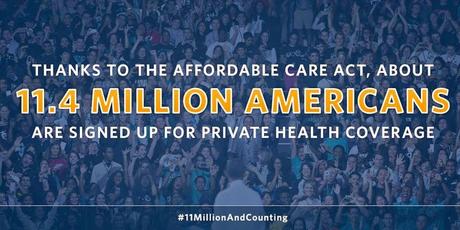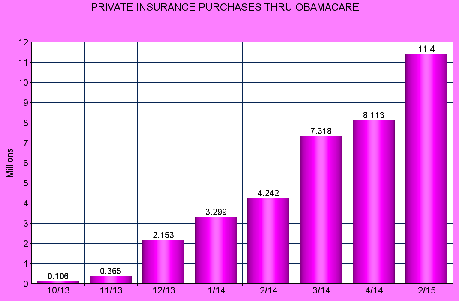
Last year's total sign-ups through Obamacare for private insurance purchases topped all expectations, and finished with more than 8 million people purchasing private insurance through the state and federal insurance exchanges. That would have been enough of a nightmare for the Republicans (who want to repeal the program), but it got much worse for them this year.
Sign-ups were expected to grow this year to about 10.3 million, but it went far past that -- all the way up to 11.4 million. That's 11.4 million Americans who would lose their health insurance if the Republicans were able to get the program repealed (and that doesn't even include the millions of Americans added to Medicare through the programs reforms).
Of course, there is no chance the Republicans could repeal Obamacare. Even if that repeal could get through Congress (which is extremely unlikely), the president would certainly veto it. But that doesn't mean the program is not in danger. There is currently a case pending before the Supreme Court (King vs. Burwell) that questions whether it is legal for consumers to get a government subsidy if they went through the federal government exchange instead of a state insurance exchange.
If the court decided those going through the federal insurance exchange could not legally get a subsidy, that would take insurance coverage away from about 8.6 million Americans (because almost all of them can only afford that insurance if they get a subsidy). What would the congressional Republicans do if that happened?
Would they act to legalize those subsidies for that 8.6 million Americans? Or would they celebrate the defeat of Obamacare (which would please many in their base), and risk that 8.6 million taking their anger out on them in the 2016 election (which would be the year their insurance ends)? It's a dilemma.
It turns out that the court case, which they originally celebrated, could turn out to work against them. It's one thing to take symbolic votes to repeal Obamacare, but quite another to actually take health insurance away from 8.6 million people.


